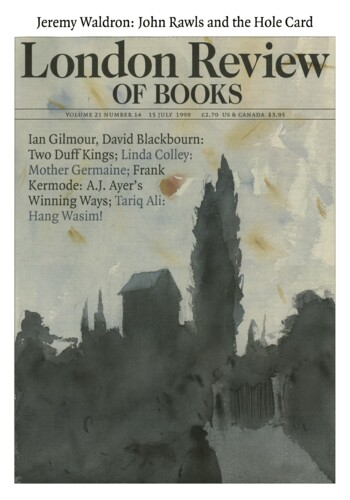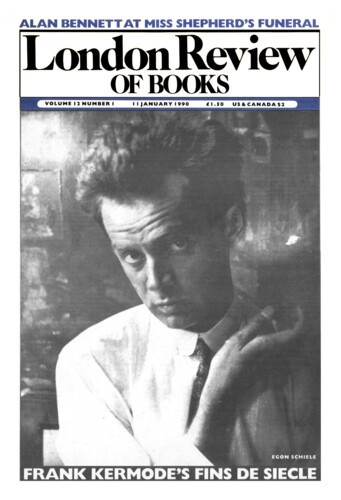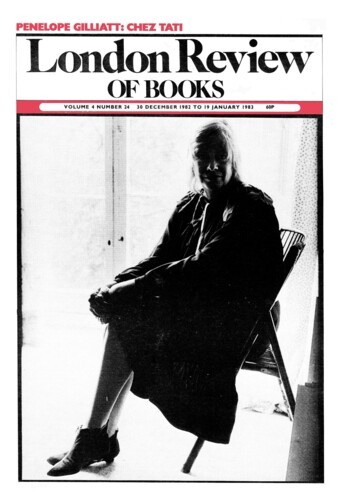Should a real musician be so tormented with music? Robert Schumann and E.T.A. Hoffmann
Misha Donat, 15 July 1999
When the celebrated violinist Joseph Joachim visited Schumann in the asylum at Endenich, near Bonn, in May 1855, he discovered that the composer – by this time in the tertiary stage of syphilis – had been spending his time compiling an alphabetical list of cities. Nearly a year later, Brahms found Schumann doing almost the same thing: ‘I looked again at his reading matter,’ he reported back to Joachim. ‘It was an atlas and he was occupied with making excerpts, childish ones, of course. Towns, rivers, etc. whose names begin with Aab, Ab, Aba, etc., gathering together the many St Juans, etc. He showed me a whole lot of paper completely covered with such writing.’’‘



